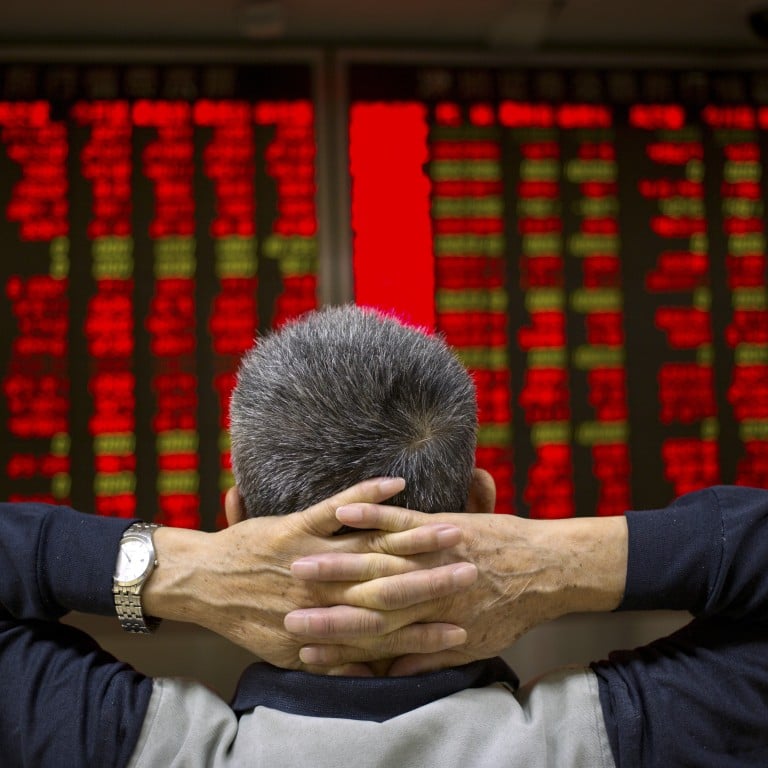
New | US Fed rates decision unlikely to calm global markets
The global market volatility that upended investors over the last six weeks may last deep into autumn now that the Federal Reserve has decided to keep interest rates unchanged, several equity and fixed income portfolio managers said on Thursday.
The Fed has not raised interest rates since 2006 and investors are concerned that a further delay will keep markets on edge, as analysts try to interpret how data points ranging from Chinese retail sales to commodity prices will influence the central bank’s next move.
"In reality, they have just added a little more uncertainty in terms of what they are thinking," said Ian Winer, head of equity division trading at Wedbush Securities in Los Angeles. "To me that brings back all the ghosts of what we saw a few weeks ago with the emerging markets and commodities."
The CBOE Volatility Index, the market’s most watched barometer of uncertainty, which had been grinding down since the spike late August, has fallen sharply to 17.87, the lowest it has been in nearly a month. While a drop in implied volatility after an event like a Fed policy meeting is typical, the markets are far from settling down.
"I would imagine you will start seeing some people putting more protection on, which should spike the VIX a little bit," said Winer.
Falling Chinese stock prices and uncertainty about the effect and timing of an interest rate rise roiled markets in late August and sent the Standard & Poor’s 500 index down 10 per cent for its first formal correction in four years.
The US benchmark stock index remains 6.6 per cent off its record-high close set back in May and is down 3.3 per cent for the year to date.
The Fed decision on Thursday is not the only thing that could prompt high levels of volatility this fall, fund managers say.
A possible US government shutdown over the federal budget and funding for Planned Parenthood, the continuing decline in Chinese equities, and the next round of quarterly earnings results which will include guidance for 2016, could all combine to keep the stock and bond markets nervous.
Notably, the worst performing sector on Thursday was financial stocks, which fell 1.3 per cent, after rallying in recent days on what some investors interpreted as the market’s acceptance that an interest rate increase was forthcoming.
Gary Cloud, a portfolio manager who oversees the fixed income portion of the Hennessey Equity and Income fund, said that "a holding pattern is going to be the short-term new normal" until the Fed announces an increase in rates. He expects to see a "range bound" US Treasury debt market for the remainder of the year, even as volatility remains elevated.
To be sure, some fund managers interpreted the Fed’s decision as a positive one.
"A few weeks ago the market was ready for it, and then the China volatility threw a wrench in that. They are trying to get the market back to pricing in an increase so that it’s not a kick in the gut," said Steve Chiavarone, co-portfolio manager of the Federated Global Allocation fund.
The Fed’s move to lower its long term projection for the fed funds rate to 3.5 per cent from 3.75 per cent could provide a boost to high-yielding dividend stocks that had traded lower prior to its announcement, said Chiavarone.
Thanks in part to a rally in dividend-paying stocks, he expects the S&P 500 index to end the year at 2,200 or about 200 points or 10 per cent higher than its closing price Thursday.
Yet Lon Erickson, co-manager of several Thornburg income funds, said that he is growing concerned that inflation will increase more quickly than the market expects, leading to a "significant" sell-off in Treasuries.
Erickson has been eyeing adding Treasury Inflation Protected Securities, commonly known as TIPS, in order to be ahead of even a smaller than expected jump in inflation.
"If you keep rates low for long enough, there’s enough money laying around that any increase in inflation is going to be interpreted as a fear that the Fed is truly getting left behind," he said.

